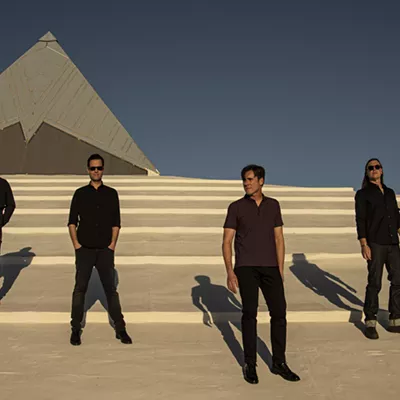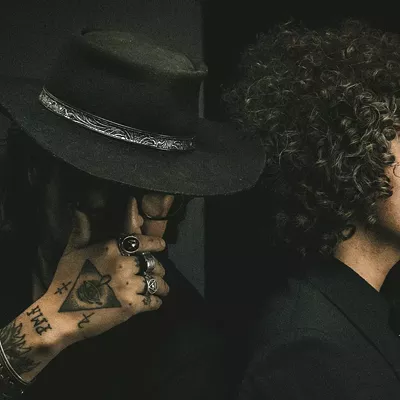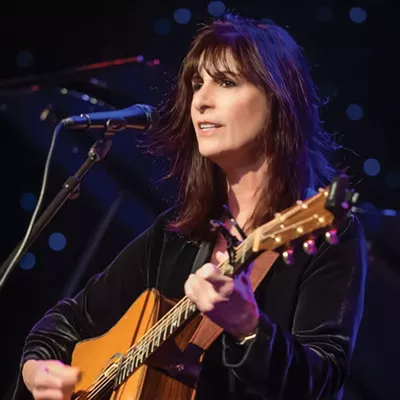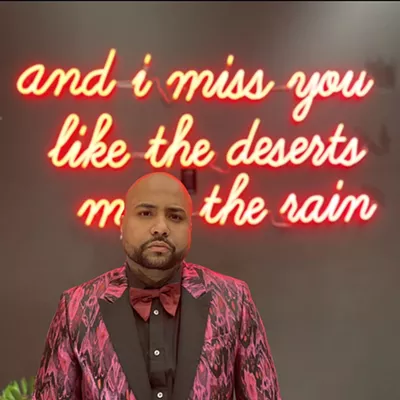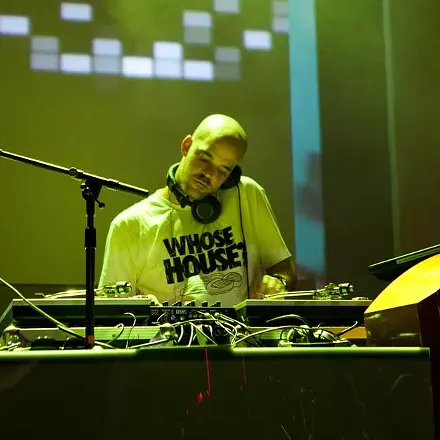Rapper Freddie Gibbs doesn't doesn't have a lane.
Coming up in Gary, Ind., he didn't have an established scene in which to make his name. He was on his own, an independent agent, and the relative solitude profoundly shaped his artistic development.
"I didn't really have no real outlet for my music 'cause I'm from such a small town," Gibbs says. "When it comes to making music, I had to establish a sound for myself. If I came out sounding like someone else or emulate what was going on at the time or not, you know what I mean—not establishing myself as Freddie Gibbs—it would have been hard for me as an artist. I see a lot of artists come and go. I've gotta be innovative. When it comes to my sound, my music, my production, all of that. It's gotta be innovative from my end because I don't have the same big machine behind me. I can't miss, I gotta make sure I hit on the target."
Over the past decade, Gibbs has hit the mark over and over again. He's released a steady string of mix tapes, making his full-length debut with ESGN in 2013. But it was Piñata, his 2014 masterpiece with producer Madlib, that raised his profile and established him as one of the finest lyricists and storytellers in hip hop. His late 2015 album, the surprise release Shadow of a Doubt, continues his streak, adding timely trap and R&B textures into his gritty crime narratives.
It's an excellent follow up to Piñata, demonstrating Gibbs' versatility. The beats sidestep between jazzy airiness and heavy, minimal grooves. "Expedite" rides a classic Bob James' Rhodes piano sample, pairing Freddie with Black Thought of The Roots and a fiery Louis Farrakhan snippet. The album breaks some new ground for the rapper—as it does in the sung loose "Basketball Wives," an auto-tune kiss off—but Gibbs never misses a chance to demonstrate his verbal prowess, going toe-to-toe with E-40 and Gucci Mane on "10 Times."
As always, Gibbs remains focused on the drug trade. "On the phone cussin' out my baby mama/she hate it cause I hang out with the killers and the robbers," Gibbs raps on "Narcos." He draws inspiration from all over — referencing Scrooge McDuck, famous dogs Cujo and Lassie and The Wire, which inspires one of the album's best cuts, "Fuckin' Up the Count." Gibbs says he'd love a reboot of the HBO drama, but quickly changes his mind.
"You know what, I don't want them to bring it back," he says. "Leave it where it is."
Gibbs' themes are familiar, but with Shadow of a Doubt he digs deeper than ever. The beautiful "Freddie Gordy" finds honest and open, detailing his own drug struggles and brutal reality in a way that's disarming. It's hardly brow beating, but it's moving to hear Gibbs be so vulnerable. "The shit I spit is so realistic shouldn't be recorded," Gibbs raps.
"Shout out to Blair Norf, he made that track," Gibbs says. "When he gave me the beat, it was something I just wanted to open up on and really let loose with," Gibbs says. "I didn't even want to do a standard hook. When I heard the beat, I just got excited. It was a real self-reflective song. I just wanted to get that off."
Laced with melodic singing and hooks, the record could potentially be viewed as "radio friendly," at least sonically—the record features some of Gibbs' most aggressive and seedy observations. But mass appeal wasn't on Gibbs' mind creating it. It was just a reflection of where his mind was while making it, when he was "bumping a lot of Isley Brothers and R. Kelly." Hard-line critics and traditionalist rap commentators might dismiss singing in rap, but Gibbs doesn't have any problem with it.
"Not at all," Gibbs says. "I wasn't trying to make radio songs or anything of that nature. I just like to make the music I like to rap to." Radio-friendly melodicism doesn't encroach on rap cred, he says, citing artists like Drake and Future as favorites.
"I love it," Gibbs says. "I'm just into making a good piece of music. If you gotta rap to do it, if you gotta sing to do it, if you gotta mother fucking beatbox or yodel—whatever you got to do to make your piece of music, I say do it. I'm all for it.
One of the most telling moments of the album features a sample of Snoop Dogg interviewing Gibbs about coming up, about how he essentially created his own path and sound. From his place in the Midwest, he felt free to incorporate musical influences from the East Coast, the West Coast, the South—wherever.
"I think I pulled from all of that," Gibbs says. "I think my style's a culmination of everything. Being from where I was, I listened to everything. I listened to Ghostface Killah, Ice Cube and I listen to 8Ball & MJG. I liked all of that shit. If I felt like I had to choose one lane or one genre of rap to go in, I'd be cheating myself because I love so much of it."
Gibbs isn't sure when he'll drop the follow up to Shadow of a Doubt—"could be tomorrow, could be a week from now," he teases—but he's feeling pretty confident about what he's built.
"I think I'm the most versatile artist in rap music," Gibbs says with the calm, steady tone of a man speaking his mind. "I don't think that no other rappers can do as many different types of records as I do. I feel like I can rap with the best of them, write songs with the best of them, so when it comes down to it, right now I can't go nowhere but up as a songwriter and a rapper. I keep getting sharper and sharper."

